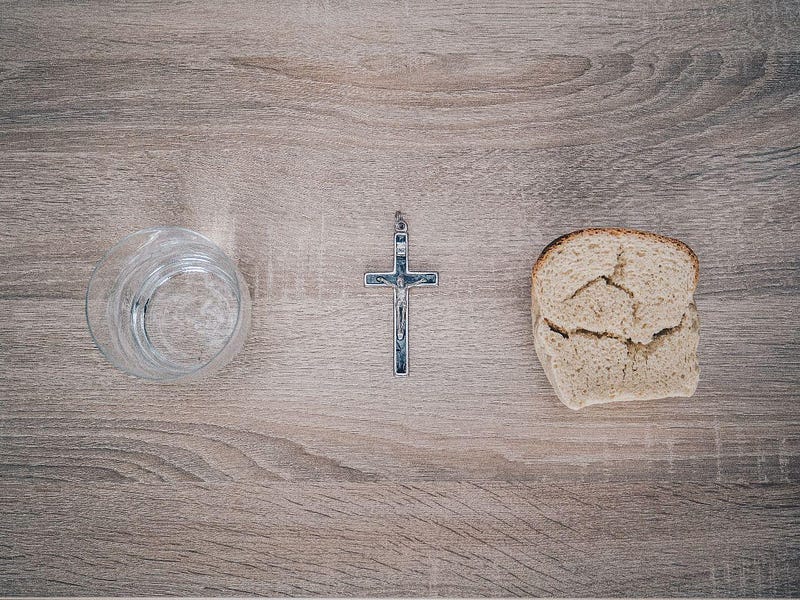
Amy and I were raising support to join the staff of Campus Crusade for Christ (Cru) and living in Mount Pleasant, MI. I had just graduated from Central Michigan University and we were excited about our future. But, we had to raise some serious cash. When you’re a missionary with Cru you have to develop all of the financial support to provide for yourself and your family. So, we decided to do what any good evangelical would, we committed to fasting for a time.
We secretly believed that God would see our fasting and he would move because we were fasting. Granted, we would never had said it that way. We would have said we were seeking to develop a dependence on God for our physical needs, or something. But, in reality we (or at least I) pretty much thought that fasting had some sort of power to move God.
During this time I was working at Wendy’s to provide for my young wife (she as working at a bank and was the real bread winner, but don’t tell 21 year old Dan that he was pretty proud). Surrounded by french fries, nuggets, and burgers made for a very difficult time of fasting. It’s OK, I decided that Frosty was a beverage.
I look back at those kids and smile. So much faith and hope. So little understanding and wisdom.
As we continue to consider the practices of abstinence there are two more that are related to one another: fasting and frugality. Remember, the practices of abstinence are rooted in our active choice to deny the self. Our culture is rooted in indulgence of the self. As we practice these disciplines we will be pushing against our culture and it will feel hard.
Fasting in its most basic form is the forgoing of food for a period of time. Just about every great religious tradition includes periods of fasting as a component of spiritual practice.
Before continuing I need to clearly state this: do not fast from food apart from the oversight of your physician.
When we fast from food we feel something physical in us. Our stomach growls, we may feel sluggish, and we become aware of our desire for food. Fasting from food opens our eyes to how frail we really are.
A food fast is not the only to practice fasting. I have found over the years that fasting from anything that dominates my mind or time has been very significant. For instance, I will regularly fast from social media. I have fasted from radio or music when driving. There have been times where fasting from little things like alcohol, sweets, or snacking has been helpful.
The important thing with fasting is identifying something in your life that you think has some form of control over you and actively choosing to forgo it. As we let it go, we then pursue additional time with God through prayer, meditation, reflection, or community.
Related to fasting is the practice of frugality. Frugality is where we actively choose to not spend money on anything beyond fundamental needs. This doesn’t mean that you should stop paying your mortgage. It means that you choose not to eat out, engage in paid entertainment, or you wait for a period to buy something that is not a need.
If fasting is a practice that helps us learn dependence, frugality helps us learn contentment. If you’re anything like me you’re always looking for the next cool thing. The next movie, the next device, the next…Frugality as a practice challenges this heart attitude. When we are practicing frugality we seek to embrace what God has already provided and choose contentment. The other frugality does is that it puts us in position to be generous. We can be generous with our time and our finances because we have chosen contentment for a season.
Have you ever practiced fasting or frugality? How has it played out in your life? What was it like? I’d love to hear your story!
Originally published at https://danielmrose.com on January 29, 2020.